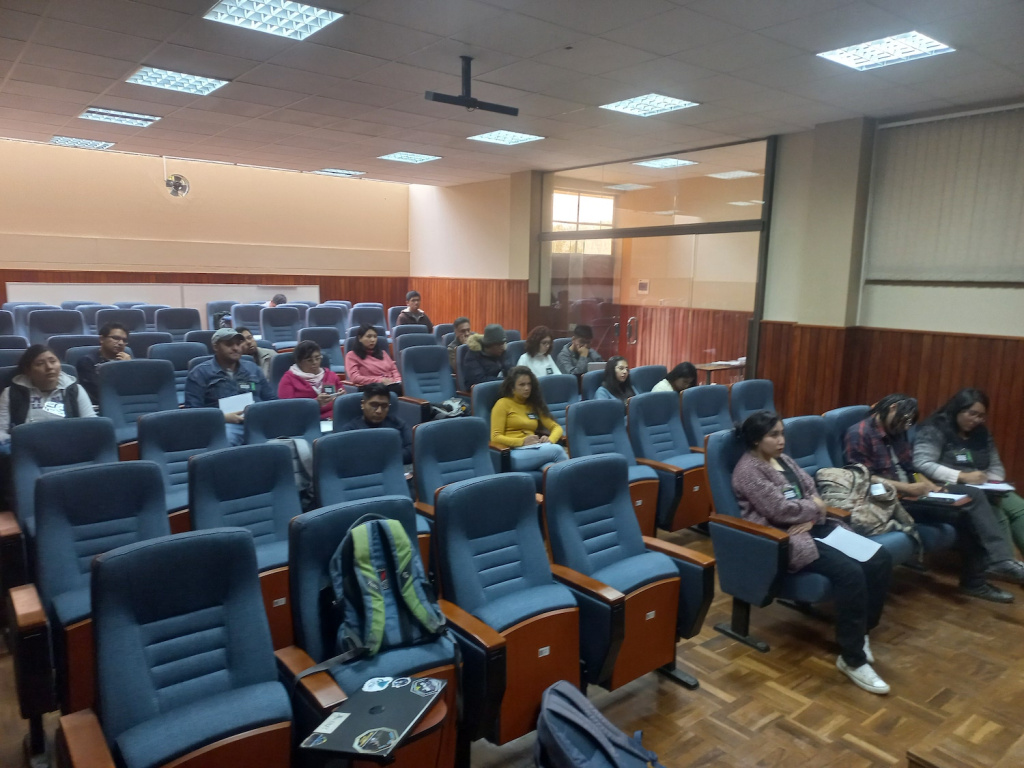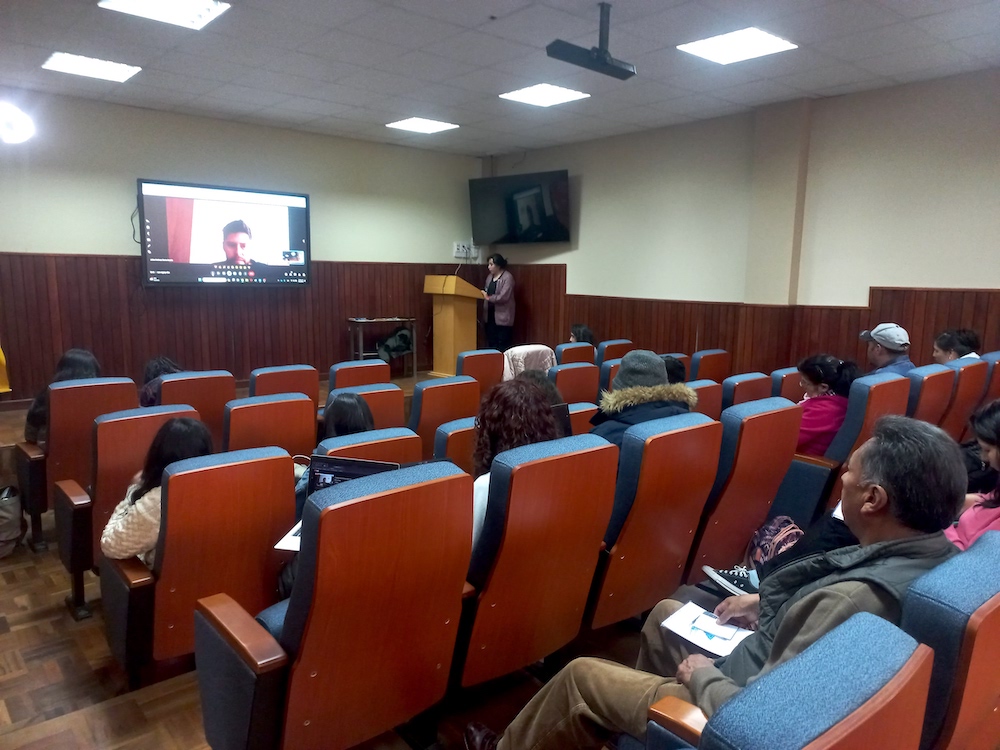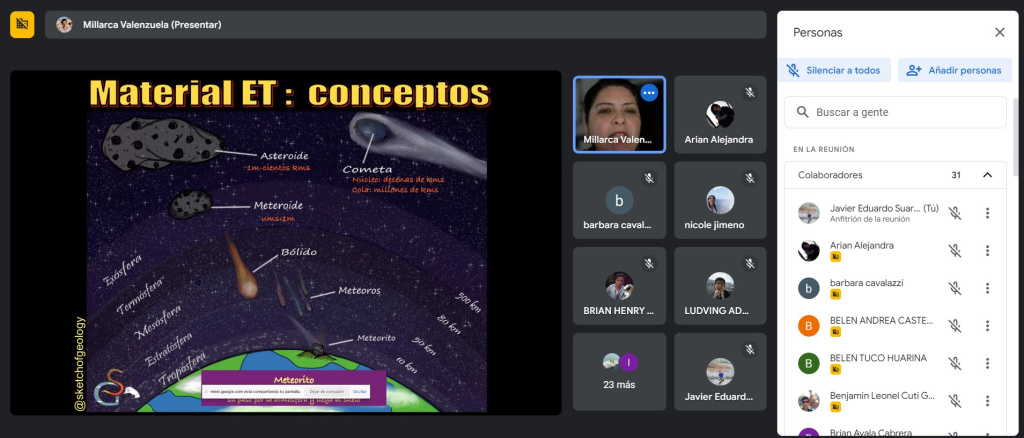1st Planetary Science Workshop in Bolivia
The first planetary science workshop in Bolivia is underway! The workshop is being held over four days at the Institute for Geological and Environmental Research (Instituto de Investigaciones Geologicas y del Medio Ambiente UMSA) in La Paz, Bolivia. It is part of the Europlanet Workshop Series, organised by the Global Collaboration and Integration Task of the Europlanet 2024 Research Infrastructure (RI) project.
The purpose of the workshop is to provide tools for the processing and mapping of planetary surfaces, exploring different planets and analogous environments in Bolivia and Latin America.
Catch up on YouTube:





